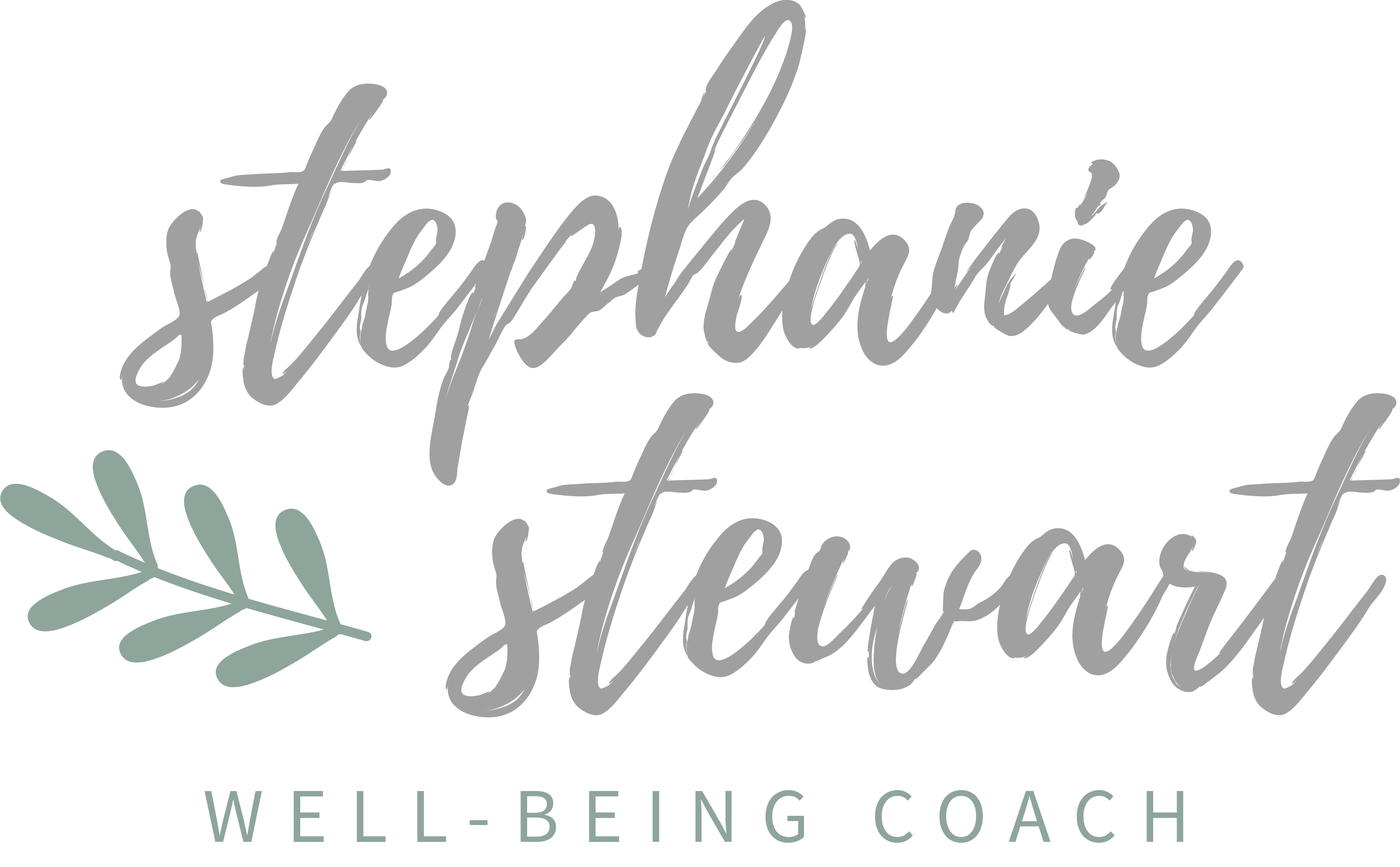
Why Accountability Works
Most people want to please other people. It gives us a sense that not only are you accomplishing something, but someone else cares about what you are doing. This, in a nutshell, is why accountability works. Today we will discuss some ways you can set up accountability in your life and why that is important on your goal setting, action taking plan for well-being.
Before we get started, think about the people in your life that will support your growth. It is important to be aware of who those people are and if they are present in your life. Grab a piece of paper and jot down a few names just to create some awareness around who those people are for you.
Cart Before the Horse
When you are trying to create change around something it is important to not jump willy nilly right into goals and action. First you need to carefully examine the situation as it stands. So, in the case of well-being, we need to first establish your current state. This has to happen so you know what needs work and it is fundamental in why accountability works. To do this, you can do a simple exercise to create more awareness.
In a journal or notebook, make two lists. One list for what things are going really well in your life in terms of your happiness, satisfaction, and well-being. The things on this list should include activities and experiences that put you in a flow state when you engage in them. If you aren’t familiar with what it means to be in flow, consider reading Mihaly Csikszentmihalyi’s book entitled Flow to gain more knowledge. For many of us, this list is sometimes pretty short. That’s ok.
In your second list, write down all the things that make you feel unhappy or out of flow so to speak. These could be things you want to do, but struggle with for whatever reason. Remember that you are making this list not to be judgmental of what is going on in your life, but rather to highlight what area, specifically, you want to work on. Working with a well-being coach helps you with this first step, which is critical. The exercise I am suggesting here is one way for you to get started quickly at home, but if you are seeking to dive deeper into this exploration consider working with a coach.
Now what?
Now that you have your lists made and you can clearly see what is making you happy and unhappy your next step is to consider where to start. Remember that our goal here is to start small and build a strong foundation for creating new habits, practices, and activities that will produce lasting change in your life. This is another really important step in why accountability works.
What are you most motivated to work on in terms of your well-being? What is most pressing? These are questions only you can answer and they are important questions for sure. Before trying to answer these questions, let’s ensure that you are in a calm state of mind first. To do this, sit comfortably and try to relax. Take several deep, slow breaths in through your nose and out through your mouth. You can do this with your eyes open or closed. Once you have taken several deep breaths, return to normal breathing and remain still and quiet with your breath for a minute or two.
When you feel calm, you are ready to choose which thing you’d like to focus on. Try not to struggle with this. In your calm state allow yourself to review your list and go with the one you feel most drawn to. Keep it simple.
Let’s set a goal!
You’ve discovered what you want to focus on — now we need to engage on how you are going to work on this. Before we get to the action steps we need a S.M.A.R.T. goal. These goals are specific, measurable, attainable, realistic, and time-bound. Again, this is where a coach really comes in handy if you struggle with this. It is ok to need help with goal setting. Good goal setting is paramount in setting up for action and a huge part of why accountability works. If you don’t have a S.M.A.R.T. goal to begin with, action and accountability are pretty useless.
So, in thinking about your focus, brainstorm some ideas. For example, if you would like to set a goal that focuses on calming emotions for well-being, get specific on what that looks like.
Get clear on the purpose
What is the purpose of the goal? In this case, it is to incorporate calming strategies for managing overwhelming negative emotions.
Do some brainstorming
What are specific ways that you can work toward this goal? Perhaps it is developing a daily meditation practice, or doing some calming stretches, or daily self-care habits. Be really specific here.
Make your selections
Which of those things do you want to try? The pitfall here is to bite off more that you can chew. Be realistic about what you are willing to do. You can always add more.
System for measuring
What ways will you measure how things are coming along? Maybe this looks like keeping a daily journal of how you feel before and after the practice you decide to incorporate.
Take action
What, specifically will you do each day to work toward the goal? An example for this would be to decide that you will meditate for 10 minutes each morning when you wake and each evening before bed. Perhaps also journaling about how you are feeling before and after each meditation period.
Set up accountability
This is where that list of names comes in handy. If you are a person who thrives on outside encouragement, external accountability is super important. To do that, you need to enlist some help from a trusted friend or partner. To be clear, this person will not be in charge of doing anything other than cheering you on and providing encouragement to keep going. There is no room for shaming or criticism here. This should be very positive for both of you.
Setting this up is simple. You share your goals and plan for action with this other person. And you establish how you will let them know you have completed your action steps and how often you will communicate this to them. Be specific. For example, if you have decided that you will meditate for 10 minutes twice per day and journal your feelings/state of mind before and after each meditation you will share that goal with your friend. If you want to email or text your friend each day letting them know you accomplished your goals for the day, you establish that. Come to an agreement for a specific start and end date for this goal and then get started. In no time you will begin to see why accountability works! As a bonus, you can act as an accountability partner for your friend. In this case, each of you would reap the benefit of growth as well as participate in the joys that come from seeing someone you care about achieve a goal.
Getting off Course
It happens. Sometimes we get thrown off course. When this happens it is so important to remember that it is ok to reset and start over. Self-criticism does you no good here. Get calm, try to discover what went wrong, and re-establish your goals accordingly. This might have happened because the goal you set was too big for right now, or because something unexpected got thrown at you.
If getting off course is a regular occurrence for you, it may be time for you to enlist some help from a coach. In well-being coaching, we work on the fundamentals of well-being and mental health so that you can discover who you are, what makes you happy, what makes you unhappy, and develop skills for resilience.
Stay the Course
You can do this practice of creating awareness, goal setting, and action in all areas of your life. It is a wonderful feeling to be working toward a goal and having success. I hope this helps you to see why accountability works and also shows you how to hold yourself accountable. Ultimately, you are your own best accountability partner. You can cheer yourself on, as well as empower and support yourself along your journey toward achieving your goals. In doing this, others cannot help but join in the cheering section. You’ve got this!
<3
Stephanie
